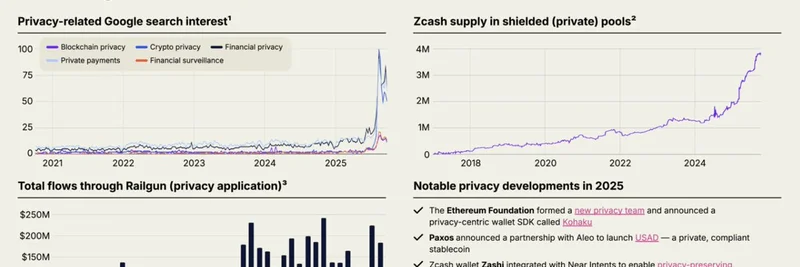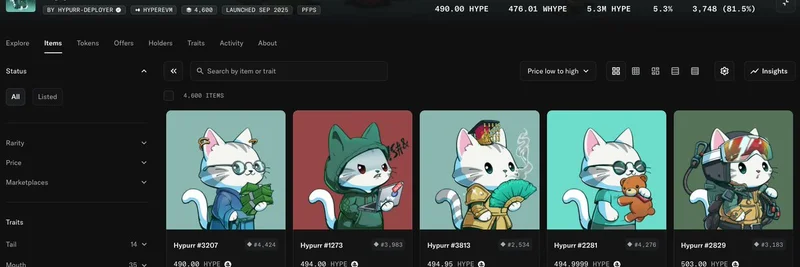In the fast-paced world of crypto, where trends can shift overnight, a single tweet can ignite a firestorm of interest. That's exactly what happened when Mert, CEO of Helius Labs and a former Coinbase alum, dropped a bombshell on X (formerly Twitter). His post highlights a massive surge in privacy-focused protocols, backed by eye-opening charts that show just how much the community is craving anonymity in their transactions.
Mert's tweet points out that Zcash's shielded pools—think of these as private vaults where transactions happen without revealing sender, receiver, or amount—have been climbing straight up. And it's not stopping there. Other privacy tools are riding the wave too, with Google searches for terms like "blockchain privacy" and "crypto privacy" going vertical. As Mert puts it, "you can just start movements by tweeting things—we will make crypto cypherpunk again." Cypherpunk? That's the OG movement from the '90s pushing for privacy through cryptography, and it's making a comeback in blockchain big time.
Let's break down the visuals in Mert's post, courtesy of sources like Google Trends, ZecHub, and Railgun Project. The left chart tracks privacy-related Google searches from 2021 to 2025. Lines for "blockchain privacy," "crypto privacy," "financial privacy," "private payments," and "financial surveillance" all spike dramatically in recent years, signaling mainstream users are waking up to the need for discretion in their digital finances.
On the right, we see Zcash's supply in shielded (private) pools ballooning from near zero in 2018 to over 4 million by 2024-2025. That's a huge vote of confidence in Zcash's zero-knowledge proofs, which let you prove a transaction is valid without spilling the details.
Below that, a bar graph shows total flows through Railgun, a privacy application on Ethereum and other chains. From humble beginnings in 2023, it's exploded to over $250 million in 2025. Railgun uses zero-knowledge tech to shield your assets while still letting you interact with DeFi apps anonymously.
The post also lists notable privacy developments in 2025:
- The Ethereum Foundation formed a new privacy team and announced a privacy-centric wallet called Kohaku.
- Paxos partnered with Aleo to launch USAD—a private, compliant stablecoin.
- Zcash wallet Zashi integrated with Near Intents for privacy-preserving cross-chain swaps.
- Noir, a zero-knowledge programming language for privacy apps, has seen an uptick in activity.
- OFAC (Office of Foreign Assets Control) officially lifted sanctions on Tornado Cash, the decentralized privacy protocol blacklisted in 2022.
This isn't just hype; it's data-backed momentum. For meme token enthusiasts, privacy matters more than ever. When you're trading volatile memes on chains like Solana or Ethereum, do you really want your wallet history broadcasted for everyone—including bots, trackers, and regulators—to see? Tools like Zcash and Railgun let you keep your strategies under wraps, potentially giving you an edge in the degen game.
Replies to Mert's tweet echo the excitement. One user asks about "ZOLANA?" hinting at privacy on Solana. Another wonders when Solana will get native privacy features. There's chatter about Starknet adding privacy to become the ultimate crypto layer. Even Railgun gets a shoutout for its staking appeal among privacy maxis.
If you're diving into meme tokens, consider how privacy protocols can safeguard your plays. Check out Zcash's official site for more on shielded transactions or Railgun's project page to see how it integrates with your favorite chains. As crypto goes mainstream, staying private might just be the smartest move.
What do you think— is the cypherpunk revival here to stay? Drop your thoughts in the comments below, and stay tuned to Meme Insider for more on how these trends impact the meme token ecosystem.




